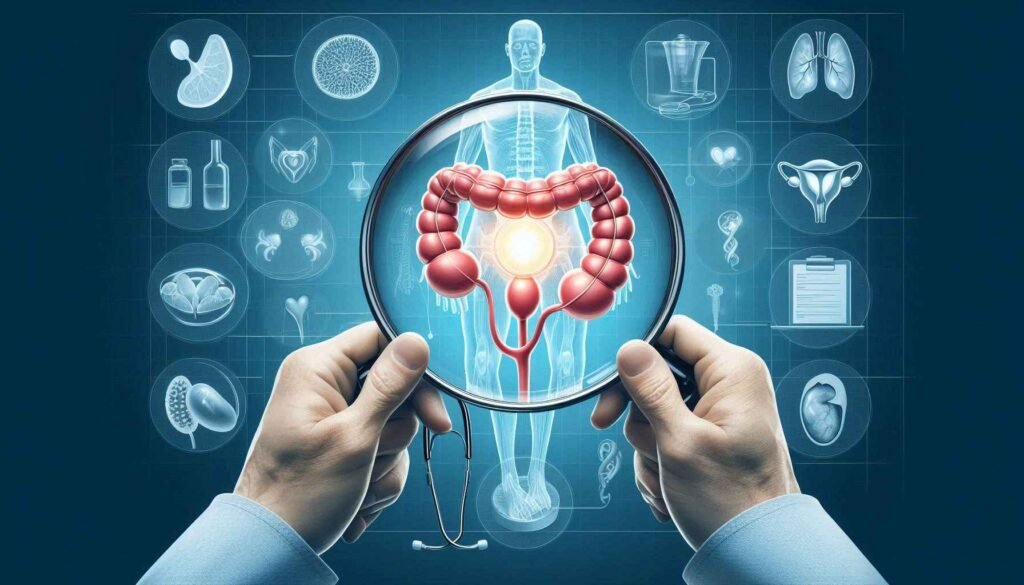
Postpartum Health: How to Care for Yourself After Giving Birth
Introduction: Why Postpartum Health Matters
The postpartum period, often called the “fourth trimester,” is a crucial time for new mothers. After giving birth, your body goes through significant physical and emotional changes. Caring for yourself during this period is vital not only for your recovery but also for your ability to care for your newborn. In this guide, we’ll explore practical ways to support your health after delivery.
Understanding the Postpartum Period
The postpartum period typically lasts for six weeks but can extend longer for some mothers. This phase involves recovery from childbirth, hormonal adjustments, and adapting to your new role as a parent.
- Physical Changes
- Healing from Delivery: Whether you had a vaginal delivery or a cesarean section, your body needs time to heal. Rest and follow your healthcare provider’s advice to manage stitches, incisions, or swelling.
- Uterine Contractions: Your uterus begins to shrink back to its pre-pregnancy size, which can cause cramping (also known as afterpains).
- Postpartum Bleeding: Vaginal bleeding and discharge, called lochia, can last for several weeks. Use maternity pads and avoid tampons during this time.
- Emotional Changes
- Baby Blues vs. Postpartum Depression: It’s normal to feel overwhelmed, weepy, or irritable after childbirth. These feelings, known as the “baby blues,” typically resolve within two weeks. However, persistent sadness, anxiety, or difficulty bonding with your baby could indicate postpartum depression. Seek support from a healthcare provider if these symptoms occur.
- Hormonal Fluctuations: After delivery, your body undergoes significant hormonal changes, which can affect your mood and energy levels.
- Common Postpartum Challenges
- Sleep Deprivation: Caring for a newborn often means interrupted sleep. Lack of rest can impact your physical and mental health.
- Breastfeeding Struggles: Many mothers experience challenges with breastfeeding, such as latching difficulties, engorgement, or low milk supply.
- Physical Discomfort: Back pain, perineal soreness, or cesarean incision discomfort are common postpartum complaints.
Self-Care Tips for Physical Recovery
Taking care of your body during the postpartum period is essential for a smooth recovery. Here are some actionable tips to help you heal effectively.
- Rest and Sleep
- Sleep when your baby sleeps to ensure you’re getting enough rest. Even short naps can help combat fatigue.
- Ask for help from family and friends to allow you more downtime.
- Nutrition for Recovery
- Eat Balanced Meals: Focus on nutrient-dense foods like lean protein, whole grains, fruits, and vegetables to support healing and energy levels.
- Hydration Matters: Drink plenty of water, especially if you’re breastfeeding, to stay hydrated and maintain milk supply.
- Postnatal Supplements: Consider taking postnatal vitamins to replenish nutrients lost during childbirth and breastfeeding.
- Gentle Physical Activity
- Start with light activities like walking to promote circulation and prevent blood clots.
- Avoid heavy lifting or strenuous exercise until cleared by your healthcare provider.
- Perineal and Cesarean Care
- For vaginal delivery: Use warm sitz baths and apply ice packs to reduce swelling and discomfort.
- For cesarean delivery: Keep the incision area clean and dry, and avoid heavy lifting to prevent complications.
Emotional and Mental Health Support
The postpartum period is a time of emotional adjustment. Prioritizing your mental well-being is just as important as physical recovery.
- Open Communication
- Share your feelings with your partner, family, or friends. Talking about your emotions can help reduce stress.
- Join a new mother’s support group to connect with others who are experiencing similar challenges.
- Mindfulness Practices
- Incorporate relaxation techniques like deep breathing or meditation to help manage stress and anxiety.
- Practice gratitude by focusing on small positive moments each day, such as your baby’s first smile.
- Professional Help
- Don’t hesitate to consult a mental health professional if you feel overwhelmed, anxious, or depressed.
- Consider postpartum counseling to navigate the emotional challenges of motherhood.
Breastfeeding and Postpartum Health
Breastfeeding is a natural process, but it often comes with challenges. Prioritizing your comfort and knowing what to expect can help make breastfeeding a positive experience.
- Establishing a Good Latch
- Find the Right Position: Experiment with different breastfeeding positions like the cradle hold, football hold, or side-lying position.
- Ensure Proper Latching: Your baby’s mouth should cover most of the areola, not just the nipple. A poor latch can lead to nipple pain or low milk transfer.
- Seek Support: If you’re struggling, consult a lactation consultant for personalized advice.
- Managing Common Breastfeeding Issues
- Engorgement: Swollen, firm breasts can be relieved by frequent nursing, applying warm compresses before feeding, and cold compresses afterward.
- Blocked Ducts: Gently massage the affected area and ensure the baby empties the breast fully during each feed.
- Sore Nipples: Use lanolin cream or breast milk to soothe cracked or painful nipples.
- Staying Nourished While Breastfeeding
- Calorie Needs: Breastfeeding burns extra calories, so ensure you’re eating enough to maintain energy levels.
- Stay Hydrated: Drink a glass of water with each feeding session to prevent dehydration.
- Foods to Support Milk Production: Include oatmeal, almonds, and leafy greens to naturally boost milk supply.
Exercise and Physical Activity After Birth
Exercise is essential for regaining strength and improving your mental well-being, but it’s important to ease into it gradually.
- When to Start Exercising
- Vaginal Delivery: Many mothers can begin light exercises like walking within a few days of delivery, but listen to your body.
- Cesarean Delivery: Wait at least 6-8 weeks and get clearance from your healthcare provider before resuming physical activities.
- Safe Postpartum Exercises
- Walking: A gentle way to get moving, improve circulation, and clear your mind.
- Pelvic Floor Exercises (Kegels): Strengthen the pelvic muscles to reduce incontinence and support recovery.
- Postnatal Yoga: Helps improve flexibility, relieve stress, and promote relaxation.
- Core Strengthening
- Avoid intense abdominal workouts like crunches initially. Instead, focus on gentle core exercises such as pelvic tilts or bridge lifts.
- Diastasis Recti Awareness: If you notice a gap or bulging in your midline, consult a physical therapist for tailored exercises.
- Benefits of Postpartum Exercise
- Boosts Energy Levels: Regular physical activity can combat postpartum fatigue.
- Improves Mood: Exercise releases endorphins that help reduce stress and symptoms of postpartum depression.
- Helps with Weight Loss: Combined with a healthy diet, exercise aids in gradually returning to your pre-pregnancy weight.
Nutrition for Postpartum Recovery
What you eat during the postpartum period plays a critical role in healing and maintaining energy, especially if you’re breastfeeding.
- Essential Nutrients for Recovery
- Protein: Supports tissue repair and muscle recovery. Include lean meats, eggs, dairy, legumes, and tofu.
- Iron: Replenish blood loss during delivery with iron-rich foods like spinach, red meat, and fortified cereals.
- Omega-3 Fatty Acids: Promote brain health and reduce inflammation. Sources include salmon, walnuts, and chia seeds.
- Meal Planning Tips
- Prepare in Advance: Stock your freezer with healthy, easy-to-reheat meals before delivery.
- Snack Smart: Keep nutrient-dense snacks like nuts, fruits, and yogurt on hand for quick energy boosts.
- Stay Consistent: Aim for three balanced meals and healthy snacks throughout the day to stabilize energy and mood.
- Hydration for Healing
- Drink at least 8-10 glasses of water daily to support tissue repair, milk production, and overall well-being.
- Limit Caffeine: Too much caffeine can interfere with your sleep and may affect your baby if breastfeeding.
Rebuilding Your Routine and Self-Care
Adjusting to life with a newborn requires finding a new rhythm. Incorporating self-care into your routine is key to maintaining your well-being.
- Creating a Daily Routine
- Set Small Goals: Focus on achievable tasks like a short walk, a shower, or a 10-minute meditation session.
- Flexible Schedules: Babies’ needs change frequently, so be adaptable and patient with yourself.
- Incorporating Self-Care
- Me Time: Carve out moments for yourself, even if it’s just 15 minutes to read, relax, or enjoy a hobby.
- Self-Compassion: Be kind to yourself and let go of unrealistic expectations. You’re doing an amazing job!
- Bonding with Your Baby
- Skin-to-Skin Contact: Helps you and your baby feel connected and supports breastfeeding.
- Mindful Moments: Enjoy simple moments like looking into your baby’s eyes or gentle rocking to build a secure bond.
- Balancing Responsibilities
- Accept Help: Let family and friends assist with meals, chores, or baby care.
- Delegate Tasks: Share household responsibilities with your partner or support network.
Emotional Well-being and Mental Health Support
The postpartum period can be an emotional rollercoaster. Taking care of your mental health is just as important as physical recovery. Recognizing your emotional needs and knowing when to seek help is crucial during this phase.
- Recognizing Postpartum Mood Disorders
- Baby Blues: Feeling weepy, irritable, or overwhelmed in the first two weeks after giving birth is common. This is often due to hormonal shifts and lack of sleep.
- Postpartum Depression (PPD): If feelings of sadness, hopelessness, or anxiety persist for more than two weeks, it could be postpartum depression. Symptoms can include:
- Persistent low mood
- Loss of interest in activities you once enjoyed
- Trouble bonding with your baby
- Intense irritability or anger
- Changes in appetite and sleep patterns
- Postpartum Anxiety: Excessive worrying, panic attacks, or feeling on edge may indicate postpartum anxiety.
- Postpartum Psychosis: A rare but serious condition involving hallucinations or delusions. This requires immediate medical attention.
- Strategies for Maintaining Emotional Health
- Talk It Out: Sharing your thoughts with a trusted partner, friend, or therapist can help relieve emotional pressure.
- Practice Mindfulness: Techniques like meditation, deep breathing, or gentle yoga can calm your mind and reduce anxiety.
- Journaling: Writing about your feelings can provide clarity and serve as an emotional release.
- Limit Social Media: Comparison with other parents online can lead to unnecessary pressure. Take breaks and focus on your journey.
- Building a Support System
- Join a New Mom Group: Connecting with other mothers can provide comfort and practical advice.
- Rely on Family and Friends: Don’t hesitate to ask for help with childcare, chores, or errands.
- Partner Support: Communicate openly with your partner about your needs, feelings, and shared responsibilities.
- When to Seek Professional Help
- Therapy and Counseling: A licensed therapist can help you work through feelings of depression or anxiety. Cognitive-behavioral therapy (CBT) is particularly effective.
- Support Groups: Many communities offer postpartum support groups led by professionals or experienced mothers.
- Medication: In some cases, antidepressants or anti-anxiety medications may be recommended. Discuss options with your healthcare provider.
Rebuilding Intimacy and Relationships
Postpartum recovery can impact your relationship and intimacy with your partner. It’s important to communicate, be patient, and rebuild closeness at your own pace.
- Understanding Changes in Intimacy
- Physical Recovery: After childbirth, it’s normal to experience discomfort, vaginal dryness, or low libido. Give your body time to heal.
- Hormonal Shifts: Changes in estrogen and progesterone levels can affect your desire for intimacy.
- Emotional Factors: Fatigue, stress, and adjusting to parenthood can reduce interest in sex.
- Tips for Reconnecting with Your Partner
- Open Communication: Talk about your feelings, fears, and expectations openly with your partner.
- Non-Sexual Intimacy: Focus on simple gestures like cuddling, holding hands, or giving each other a massage.
- Plan Date Nights: Even a short outing or a quiet evening at home can help you reconnect.
- Go Slow: Take your time with intimacy, and use lubrication if needed. It’s okay to wait until you feel ready.
- Addressing Relationship Stress
- Share Responsibilities: Balance childcare and household tasks to reduce tension and resentment.
- Seek Counseling: Couples therapy can help if you’re struggling with communication or adjusting to new roles.
- Prioritize Teamwork: Remember that you and your partner are in this together. Support each other’s needs and challenges.
Sleep Management for New Moms
Lack of sleep is one of the biggest challenges for new mothers. While a full night’s sleep may be elusive, there are ways to improve rest and avoid burnout.
- Practical Tips for Better Sleep
- Sleep When the Baby Sleeps: Nap during your baby’s daytime naps, even if it’s just 20 minutes.
- Create a Nighttime Routine: A calming bedtime routine, like a warm shower or reading, can help you wind down.
- Share Nighttime Duties: If possible, alternate night shifts with your partner or a family member.
- Limit Caffeine: Avoid caffeine in the afternoon and evening to improve sleep quality.
- Optimizing Your Sleep Environment
- Dark and Quiet Space: Use blackout curtains and white noise machines to create a restful environment.
- Comfortable Bedding: Invest in comfortable pillows and a supportive mattress.
- Limit Screen Time: Turn off electronic devices an hour before bedtime to promote better sleep.
- Dealing with Sleep Deprivation
- Practice Relaxation Techniques: Deep breathing or mindfulness exercises can reduce stress and help you fall asleep faster.
- Accept Help: Allow friends or family to watch the baby while you catch up on sleep.
- Avoid Overcommitment: Give yourself permission to say no to extra tasks or social obligations.
Recognizing the Importance of Postpartum Check-Ups
Regular postpartum check-ups ensure your recovery is on track and help identify any potential issues early.
- What to Expect at Your Postpartum Visit
- Physical Examination: Your healthcare provider will check your healing, including your uterus, stitches, and incision (if applicable).
- Mental Health Screening: You may be asked about your mood, energy levels, and emotional well-being.
- Breastfeeding Support: Discuss any concerns about breastfeeding or milk supply.
- Questions to Ask Your Doctor
- How long should I wait before resuming exercise or sexual activity?
- Are my physical symptoms normal, or should I be concerned?
- What are my options for contraception or family planning?
- How can I manage feelings of stress, anxiety, or depression?
- When to Seek Immediate Care
- Signs of Infection: Fever, severe pain, foul-smelling discharge, or redness/swelling around the incision.
- Heavy Bleeding: Large clots or soaking more than one pad an hour could indicate a problem.
- Severe Emotional Distress: Thoughts of harming yourself or your baby require immediate attention.



